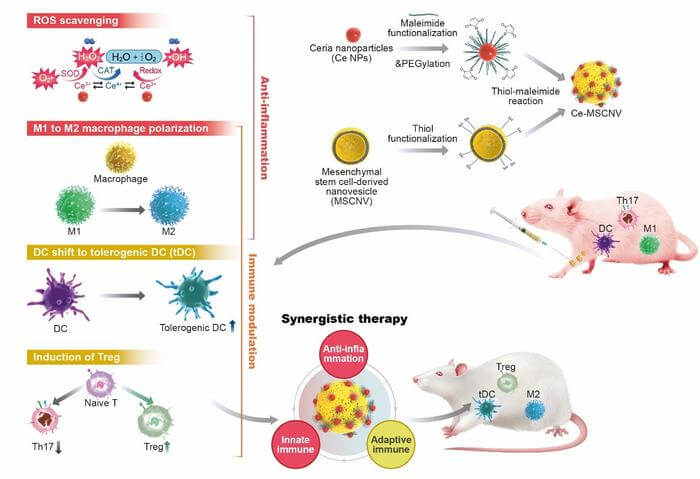SEOUL, South Korea — Millions of individuals suffering from the crippling effects of arthritis may soon see relief thanks to a groundbreaking scientific discovery. Researchers in South Korea have identified new nanoparticles that show promise in treating rheumatoid arthritis. A single dose of this state-of-the-art medication has the potential to offer significant relief to patients, according to lab trials involving mice.
According to the National Institutes of Health, over one million adults suffer from rheumatoid arthritis (RA) in the United States alone. RA disproportionately impacts women, affecting two to three times as many women as men. The condition most commonly develops in individuals between the ages of 40 and 60.
The Korean scientists believe they have devised a novel treatment strategy for RA, a condition currently without a cure. They point out that RA induces a range of troublesome symptoms, including inflamed joints, harmful cytokines, and immune system imbalances. These factors collectively contribute to a vicious cycle of escalating symptoms.
Although addressing some of these issues can offer temporary relief, others persist, leading to an ongoing cycle of remission and flare-ups. Sagang Koo, the study’s lead researcher from Seoul National University, highlights a significant challenge in RA treatment: the inability to restore the immune system to a healthy state. This leaves the body incapable of controlling the continuous production of harmful substances, such as reactive oxygen species (ROS) and inflammatory cytokines, resulting in persistent inflammation and discomfort.
Koo emphasizes that the ideal RA treatment should not only provide immediate symptom relief but also tackle the root cause by reestablishing the immune system’s balance.

The innovative treatment platform immobilizes ceria nanoparticles (Ce NPs) onto mesenchymal stem cell-derived nanovesicles (MSCNVs). Both components can individually and collectively counteract various pathogenic factors, paving the way for a comprehensive treatment strategy.
In summary, this method seeks to unify innate and adaptive immunity to provide immediate pain relief and transform the tissue environment into an immune-tolerant state, preventing symptom recurrence.
The team verified the effectiveness of this approach using a collagen-induced arthritis mouse model, demonstrating that the Ce-MSCNV system could “comprehensively treat” and prevent RA by simultaneously alleviating symptoms and restoring T cell immunity. Data indicate that a single dose of this treatment can lead to improved conditions.
Mice treated with the combined Ce-MSCNV therapy showed significantly better outcomes compared to those treated solely with Ce NP or MSCNV, highlighting the synergistic effect of anti-inflammation and immunomodulation. This underscores the vital role of combined therapy in effectively treating RA.
Moreover, administering Ce-MSCNV prior to a booster injection significantly reduced both the incidence and severity of symptoms, showcasing the nanoparticles’ potential as a preventive treatment.
“One of the hardest decisions in intractable disease therapy is determining how long the treatment should be carried on. For RA, it would not be appropriate to stop treatment just because the target marker is stabilized. A safer indicator should be that the innate and adaptive components of the collapsed immune system are normalized to protect the body,” says Koo, the study’s first author, in a media release.
Dr. Koo believes that a similar approach would also be applicable to other inflammatory and autoimmune diseases.
The findings are published in the journal Nature Nanotechnology.
You might also be interested in:
- Too young for arthritis? 15% of global population over age 30 have condition
- Best Glucosamine Supplements: Top 5 Joint Health Products, According to Experts
- Common painkillers like ibuprofen and naproxen can make arthritis inflammation even worse

South West News Service writer Stephen Beech contributed to this report.




will osteoarthritis be helped by this?
This is great news! How long before it’s available for humans?
Please tell me when I can do this treatment. I’ve used everything and they all stop working